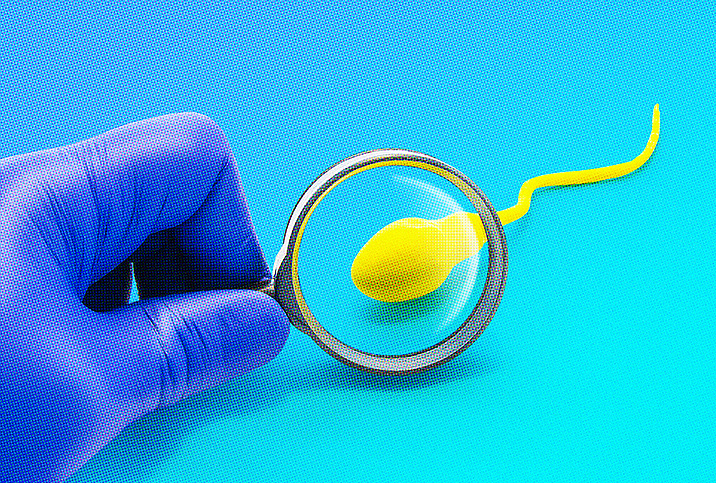How Antisperm Antibodies Affect Fertility

Our immune system does a lot of work. Every day, it fights off dangerous bacteria, viruses and fungi. Thankfully, we don't usually notice any of the side effects—fevers, body aches and more—that come with an immune response until they become more pronounced.
But what about a reaction to ejaculation? Our bodies can actually have an immune system response to our own, or someone else's, sperm. This process can cause infertility and immune system responses due to the creation of antisperm antibodies. As the name implies, these antibodies mistakenly identify sperm as harmful invaders and attempt to damage or kill them, making the process of conceiving far more complicated.
How are antisperm antibodies produced?
There are all sorts of events and substances that can trigger the production of these special proteins. Antibodies help the immune system search out and destroy foreign pathogens as they are detected, and sperm can be targeted as well. While a response to someone else's sperm seems to make sense, the body's immune system can be triggered by the release of its own sperm, too, causing health complications and fertility issues. This means that antisperm antibodies can be produced by anyone, both men and women.
Antisperm antibodies are part of an immune system reaction. But the causes of the reaction can vary from person to person. For some, a testicular injury, vasectomy or chronic inflammation of the prostate can complicate ejaculation. These conditions may divert seminal fluid into areas of the body where it may not be recognized, resulting in a reaction to one's own sperm cells.
What can you do about antisperm antibodies and fertility?
Antisperm antibodies are a big deal when it comes to trying to conceive because they target and kill sperm cells. It's estimated that up to 36 percent of infertility cases are caused by these antibodies. But it's not always easy to tell if you or a partner is having an immune system response to sperm, because it can happen to any gender and may not present any physical symptoms besides difficulty getting pregnant.
Medical professionals check for antisperm antibodies using blood tests. These tests look for signs of an ongoing immune reaction. If antisperm antibodies are identified, doctors may prescribe medication that lowers the immune system's reaction to sperm entering the body.
The best way to know if you or a partner's infertility issues are being caused by antisperm antibodies is to have a test conducted.
These antibodies can make becoming pregnant difficult but not impossible. For men who are experiencing an immune response to sperm, consulting an immunologist or urologist should be a priority, and freezing sperm for alternative ways of conception is a great option to avoid unwanted side effects. For those who aren't trying to conceive, antisperm antibodies pose minimal risk in unprotected sex, especially if pregnancy isn't a goal.
Antisperm antibodies are an unusual defense mechanism that gets triggered by the body's reaction to sperm. Knowing how and why this process occurs can prevent complications from this medical condition.


















